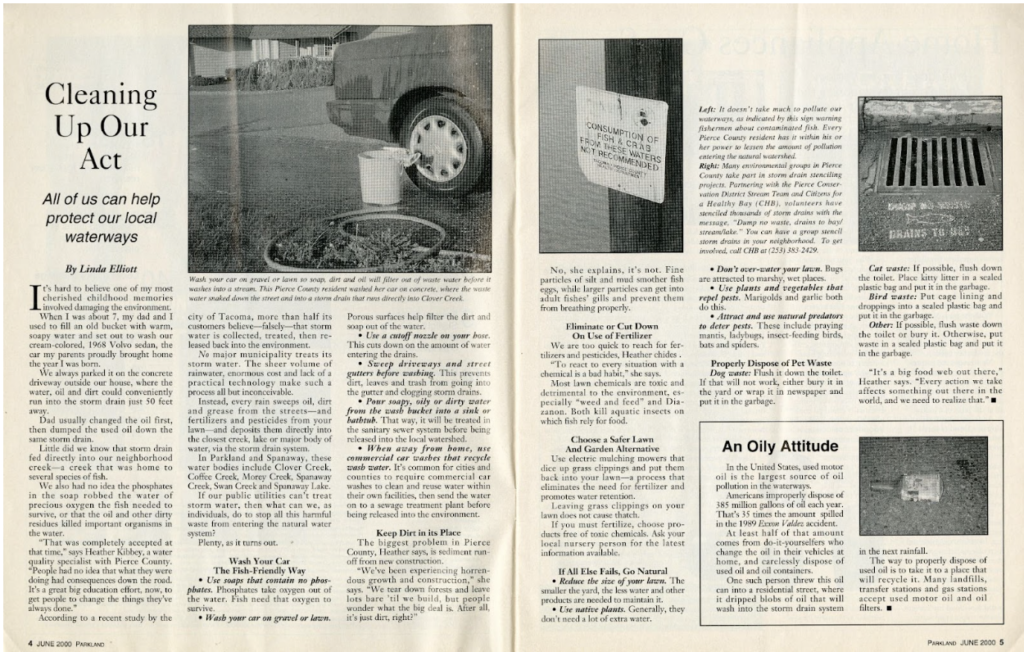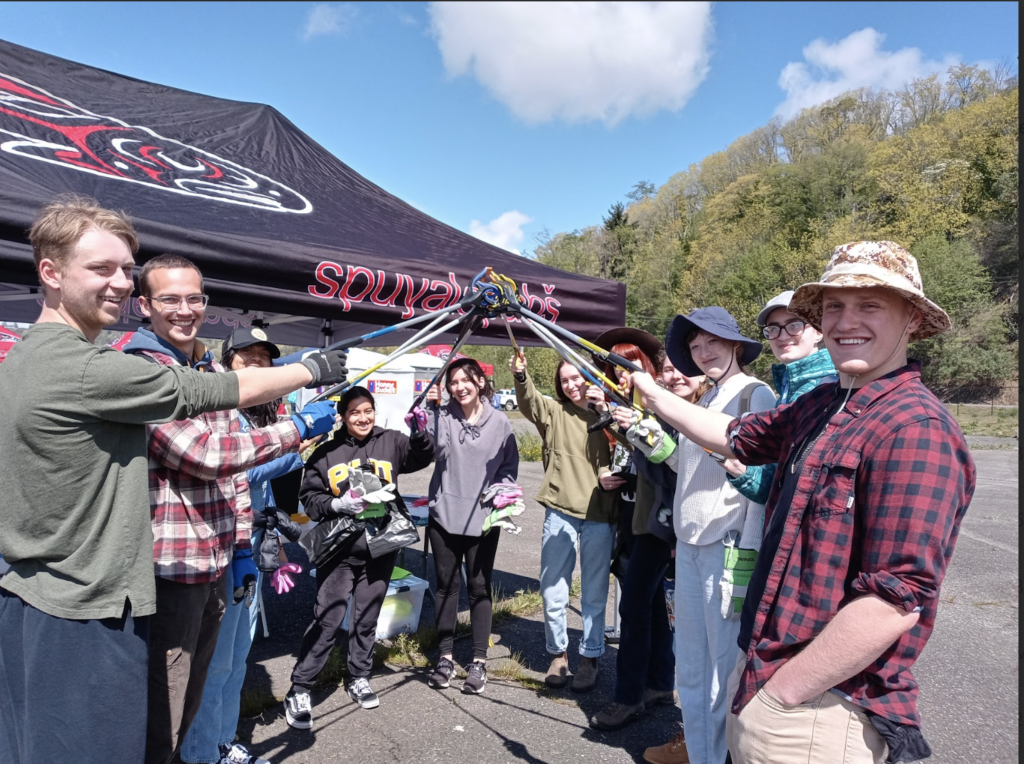Page 3 • (696 results in 0.051 seconds)
-
Intersectional Environmentalism and Environmental Justice: If you’re interested in reading up on the intersections of environmental justice and anti-racism, we invite you to draw on the wealth
Robinson-Bertoni Coming Soon! ENVT 350: Environmental Methods of Investigation Dr. Rose McKenney and Guest Instructors Every semester, students in this course take a one-week course with an expert instructor representing four different disciplines. Each instructor designs and assigns a project to provide students with the opportunity to apply their disciplinary lens to the Watershed. In addition, students complete several projects designed and supported by the main instructor of the course. Below we
-

On the other hand, the Chambers-Clover Creek watershed still faced high volumes of pollution and degradation. Featured in the Parkland Ruralite were ways to help maintain healthy streams.
On the other hand, the Chambers-Clover Creek watershed still faced high volumes of pollution and degradation. Featured in the Parkland Ruralite were ways to help maintain healthy streams.
-
Elizabeth Sloan, Senior Capstone Seminar Using Biolog Ecoplates analysis of microbial communities from canopy soil in the Gifford Pinchot National Forest was analyzed.
2007 Capstone Celebration SymposiumPLU Chemistry Department May 1st to May 4th, 2007 Come and join the Chemistry department to hear the senior capstone presentations. Student presentations will occur Tuesday through Friday. The schedule of talks with more details is given below. [ Tuesday | Wednesday | Thursday | Friday ] All talks will be held in the Morken Center in Room 103!Tuesday, May 1st, 2007 Session 1, Chair: Dean Waldow 1:00 pm - Analysis of Microbial Communities in Forest Canopy Soil
-

PLU still offers Environment 350 to Environmental Studies students. Throughout the course, students and faculty spend the semester researching different sites in the watershed through multiple disciplines: Ecology, Chemistry, Geology, English, Indigenous Studies, and more.
PLU still offers Environment 350 to Environmental Studies students. Throughout the course, students and faculty spend the semester researching different sites in the watershed through multiple disciplines: Ecology, Chemistry, Geology, English, Indigenous Studies, and more.
-
*Effective January 2019* Upon completion of their degree, Religion majors will be able to: Explain “Religion” as a category of analysis in academic contexts, identifying when and how religious
Learning Outcomes*Effective January 2019* Upon completion of their degree, Religion majors will be able to: Explain “Religion” as a category of analysis in academic contexts, identifying when and how religious beliefs, interpretations, and practices shape human life, culture, and history, as well as how they change over time. Analyze religious traditions and expressions within their historical, social, and cultural contexts. Describe an array of academic tools or methods in the study of
-
Updating of the university’s affirmative action plan completed in February 2003. A full analysis is completed annually by Human Resources and a summary report is shared with President’s Council.
Updating of the university’s affirmative action plan completed in February 2003. A full analysis is completed annually by Human Resources and a summary report is shared with President’s Council.
-
The discipline of history focuses on critical analysis of text-based evidence from the past and seeks a detailed, complex understanding of individual and collective human behaviors as they have
Why Study History?The discipline of history focuses on critical analysis of text-based evidence from the past and seeks a detailed, complex understanding of individual and collective human behaviors as they have emerged, intersected, and altered over time. Historical study examines and attempts to explain processes of change over time as they pertain to cultures, nations, institutions, value systems, and other major social phenomena. Historians also consider and outline patterns of causation
-
What is studying history all about at PLU? Traditionally, the discipline of history has focused on the critical analysis of text-based evidence from the past and seeks a detailed, complex
Mission StatementWhat is studying history all about at PLU? Traditionally, the discipline of history has focused on the critical analysis of text-based evidence from the past and seeks a detailed, complex understanding of individual and collective human behaviors as they have changed over time. PLU students of history develop lifelong habits of critical thinking, inquiry-based reading of texts, effective research and technical skills, and the appreciation of complexity and diversity in human
-
The Wang Center Research Grant Program is designed to support students, faculty, and faculty-student teams that seek to conduct original research in an international setting.
and Taylor Lunka 2013-2014Student Projects Emily Bishop, Echoing Thresholds: Poetry and Culture in the UK Shannon Burlingame, Researching APPO Protests of 2006 Seanna Hewitt, Analysis of Water-Related Issues in the Rio Verde-Atoyac Watershed of Oaxaca Saiyare Refaei, Research on the Role of NAFTA on Oaxacan Artist Collectives for Social Justice Karina Sandoval, Researching the Role that Social Development Organizations have on Mixteco-speaking Children Faculty Projects Bradford Andrews, Studying
-
Program length: 28 months Program start: Depends on gap analysis Total credit hours: 40 Class schedule: For the most part, classes are held Thursday evenings and all day Fridays, with a few daytime
Family Nurse Practitioner Certificate CurriculumProgram length: 28 months Program start: Depends on gap analysis Total credit hours: 40 Class schedule: For the most part, classes are held Thursday evenings and all day Fridays, with a few daytime courses in the summer and January terms. The Post Graduate Certificate curriculum consists of the specialty track coursework for the Family Nurse Practitioner. Most students will have completed NURS 580, 582, and 583 before starting the program, but
Do you have any feedback for us? If so, feel free to use our Feedback Form.


